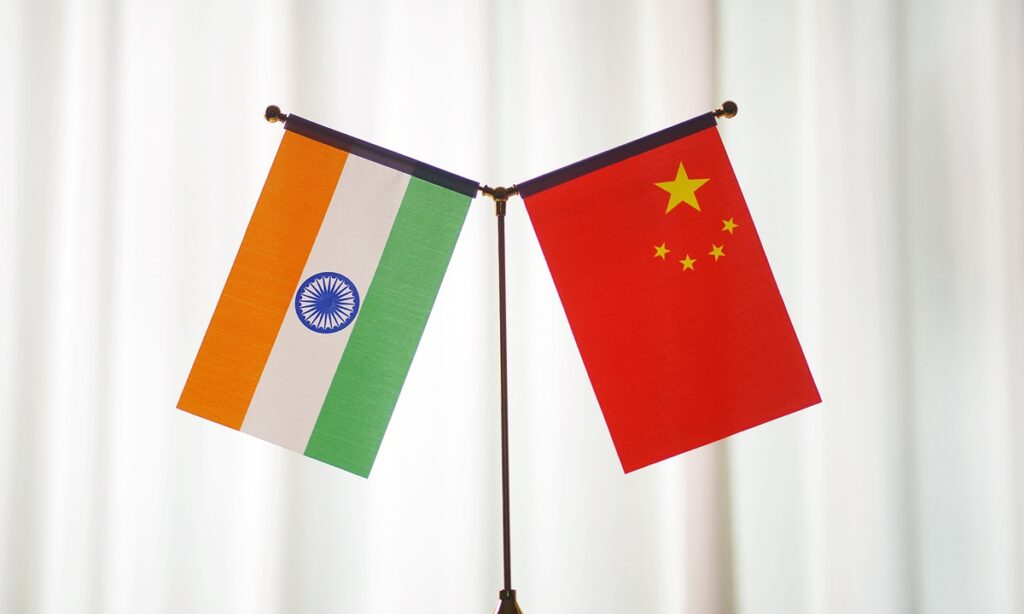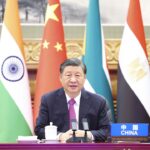It was really clumsy and unnecessary for Australian Deputy Prime Minister and Defense Minister Richard Marles to try to strengthen Australia’s ties with India by sowing discord between China and India.
During his visit to India this week, Marles on Monday described China as a source of both national wealth and anxiety, according to both Indian and Australian media reports. “For both of us, China is our biggest trading partner. For both of us, China is our biggest security anxiety,” he said.
The ill intention behind Marles’ remarks is self-evident. The attempt to drive a wedge in the China-India economic relationship showed malice toward Beijing and disrespect for New Delhi.
Aren’t the Indians themselves clear about the situation of China-India relations and bilateral economic exchanges? Does Australia’s deliberate “reminder” to India, which linked the economic relationship with China to the so-called security issue, mean that Australia is trying to take advantage of India’s tension with China for its own strategic purposes?
A major country like India surely has seen clearly what Australia is up to, and, hopefully, will not easily fall for Marles’ cheap trick.
China-Australia relations are at a critical juncture, with signs of an over-all improvement. From November 4 to 7, Australian Prime Minister Anthony Albanese paid a historic trip to China to stabilize bilateral relations despite pressure and opposition. As a result, general stability has been restored to bilateral ties after years of ups and downs, with disputes being resolved gradually and properly.
In the midst of this warming of relations, it is not surprising to hear anti-China voices in Australia, which are creating incidents and noise in an attempt to undermine the steady improvement and development of China-Australia relations. But the Australian government has clearly chosen the path of pragmatic cooperation, which is conducive to both countries and their peoples, after having recognized the importance of trade with China to the Australian economy.
It is sincerely hoped that India can also see the importance and objective necessity of China trade and embrace this trend for pragmatic cooperation.
China has been one of India’s largest trading partners for many years, and bilateral economic and trade cooperation has brought tangible benefits to businesses in both countries. But it is true that due to border disputes and other geopolitical factors, the development of China-India economic and trade relations has faced obstacles in recent years.
Under an inclination to politicize economic and trade issues, the Indian government has intensified crackdowns on Chinese companies operating in the India market. Media reports even described some of the incidents as part of India’s efforts to “decouple” from China.
But even under such circumstances, China-India trade has continued to grow, which shows the resilience of bilateral economic cooperation. Chinese customs data showed that bilateral trade reached 789.7 billion yuan ($110.78 billion) in the first 10 months of this year, up 6.3 percent year-on-year. Over the years, Indian imports of manufactured goods from China have effectively reduced the cost of production for Indian companies, improved production efficiency and increased the global competitiveness of Indian products.
In this sense, the key issue for India to develop its manufacturing industry is how to interact with China in industry chain cooperation, instead of artificially excluding Chinese investments and trying to build local supply chains that are aimed at “decoupling” from China. The pursuit of “decoupling” from China goes completely against India’s goal of developing its own manufacturing sector.
If India really moves toward reducing China trade or wants to replace China’s role in the global industry chain because of the so-called security issues, it will only increase the economic burden on its people and undermine the competitiveness of its own exports, thus blocking its transformation toward a manufacturing power.
(Global Times)




